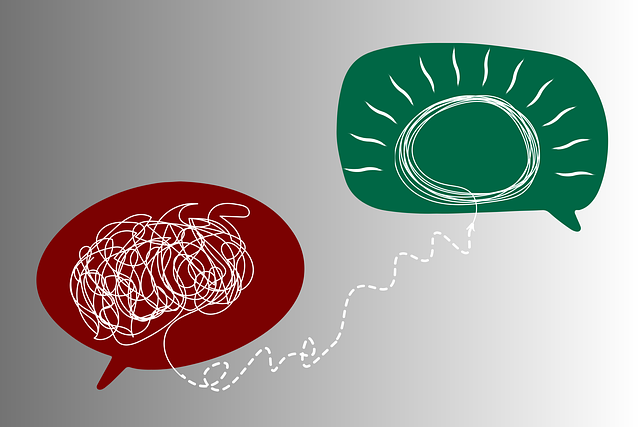Adolescent mental health is a complex issue, exacerbated by gender identity struggles often overlooked amid peer pressure, academic demands, and social media influences. Early intervention through tailored therapy focusing on individual, group, and family counseling is crucial. Evidence-based practices like CBT and ACT, combined with community outreach programs, equip teens with coping mechanisms and build resilience against societal challenges. Creating supportive environments at home, school, and through peer groups empowers adolescents, particularly those exploring gender identity, to feel understood and foster self-acceptance. Early therapy interventions, along with mental wellness coaching and risk management planning, offer comprehensive support systems for these young individuals.
Mental wellness promotion among adolescents is a critical area of focus, given the rising rates of anxiety, depression, and other mental health challenges. This article delves into various aspects of adolescent mental health, exploring risk factors and unique challenges they face. We discuss the crucial role of therapy in supporting teens, with specific emphasis on effective approaches for gender identity issues. Additionally, we provide practical strategies for creating a supportive environment and empowering teens to build resilience through self-care practices.
- Understanding Adolescent Mental Health: A Critical Look at Risk Factors and Challenges
- The Role of Therapy in Supporting Teens: Effective Approaches for Gender Identity Issues
- Creating a Supportive Environment: Strategies for Parents, Educators, and Peers
- Empowering Teens: Self-Care Practices and Building Resilience for Long-Term Wellness
Understanding Adolescent Mental Health: A Critical Look at Risk Factors and Challenges

Adolescent mental health is a complex landscape that requires careful navigation. During their formative years, teens navigate a myriad of changes, including physical, cognitive, and emotional transformations. However, this period can also be fraught with challenges, as various risk factors contribute to the emergence of mental illness. One significant aspect often overlooked is the impact of gender identity on an adolescent’s well-being. Issues related to therapy for adolescent teens with diverse gender identities present unique hurdles, demanding tailored support and understanding.
The quest for optimal mental wellness among adolescents involves addressing the root causes and risk factors, such as peer pressure, academic expectations, family dynamics, and social media influence. Depression prevention strategies are crucial in this context, focusing on early intervention and fostering resilience. Effective communication strategies between teens, parents, and healthcare providers play a pivotal role in breaking down barriers and reducing the stigma surrounding mental illness. By implementing these measures, we can create an environment that encourages open dialogue and promotes healthy coping mechanisms for our young people.
The Role of Therapy in Supporting Teens: Effective Approaches for Gender Identity Issues

Therapy plays a pivotal role in supporting teen age individuals navigating gender identity issues. It provides a safe space for them to explore their feelings, thoughts, and experiences, fostering self-acceptance and understanding. Effective therapy approaches for this demographic often incorporate elements of individual counseling, group therapy, and family involvement, tailored to the unique needs of each adolescent. By integrating evidence-based practices such as cognitive behavioral therapy (CBT) and acceptance and commitment therapy (ACT), therapists can help teens develop coping mechanisms, enhance self-esteem, and cultivate resilience in the face of societal challenges related to gender identity expression.
Moreover, these therapeutic modalities equip young individuals with essential conflict resolution techniques, enabling them to navigate interpersonal relationships more effectively. Community outreach program implementation within therapeutic settings further reinforces support networks, offering peer connections and resources for ongoing emotional healing processes. This holistic approach ensures teens receive comprehensive care, promoting their mental wellness as they come to terms with their gender identity.
Creating a Supportive Environment: Strategies for Parents, Educators, and Peers

Creating a supportive environment is paramount for promoting mental wellness among adolescent teens, especially those navigating issues related to gender identity. Parents, educators, and peers play crucial roles in fostering safe spaces where young individuals feel understood and empowered. This can involve implementing tailored strategies that address unique challenges, such as providing gender-affirming environments at home and school, encouraging open dialogues about identity, and offering access to specialized therapy for adolescent teens exploring their gender.
Peer support groups and mental wellness coaching programs can significantly enhance trauma support services. Educators can facilitate these initiatives by integrating mental health literacy into curricula, promoting peer mentoring, and ensuring availability of resources like on-campus counseling services. Moreover, effective risk management planning for mental health professionals is essential to create a comprehensive support system. This involves regular staff training, clear protocol for crisis intervention, and ongoing monitoring to ensure the highest quality care for all adolescents within the community.
Empowering Teens: Self-Care Practices and Building Resilience for Long-Term Wellness

For adolescent teens, cultivating mental wellness involves empowering them with effective self-care practices and building resilience early on. This process is crucial in navigating the complexities of growing up and forming their identity, especially for those exploring their gender identity. Therapy can play a pivotal role by providing a safe space for teens to express themselves freely, fostering emotional regulation skills that will serve them well throughout their lives.
By incorporating strategies for inner strength development, such as mindfulness exercises and healthy coping mechanisms, adolescents gain tools to manage stress and overcome challenges. This proactive approach to mental health not only supports their current emotional well-being but also cultivates resilience, enabling them to face future obstacles with greater ease.
Mental wellness promotion among adolescents is a multifaceted endeavor that requires understanding risk factors, implementing effective therapy approaches like those tailored for gender identity issues, and fostering supportive environments. By equipping parents, educators, and peers with strategies to support teens, we can empower them to practice self-care and build resilience. These combined efforts are crucial in navigating the challenges of adolescence and ensuring long-term mental wellness, especially when it comes to therapy for adolescent teens with gender identity concerns.








